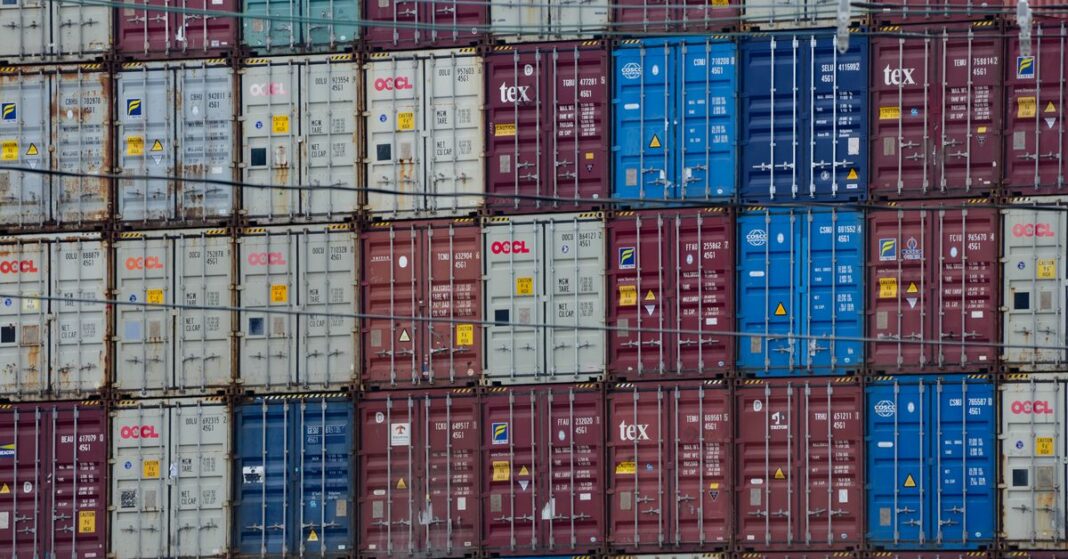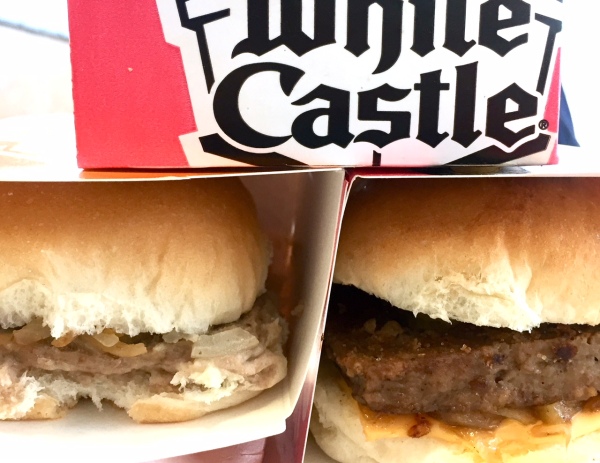New York restaurants and food businesses are bracing for rough waters when it comes to getting their wares from around the world, as today marks the beginning of a dockworkers’ strike: Nearly 50,000 members of the International Longshoremen’s Association (ILA) from the East Coast to the Gulf Coast walked off the job at midnight Tuesday when their contract expired. This is the first walk-off since 1977; the strike affects 36 ports from Maine to Texas, with projected costs of $5 billion a day, according to JP Morgan.
The strike could affect the flow of international imports and exports, potentially reigniting inflation and causing shortages. Items affected would include automobiles and iPhones, as well as produce, fish, olive oil, and wine. “It’s a big worry; a lot comes through on the East Coast,” says Sal Lamboglia, owner of Cafe Spaghetti and Swoony’s in Brooklyn. “For us, we are hoping that we don’t get impacted financially. With availability and prices on food already inflated, I am hoping that they can settle fast and figure it out and do what’s right so we can move forward.”
Dockworkers are striking in protest over wages and the growing threat they’ll be replaced by automation. Eater has reached out to ILA for a statement. President Biden said over the weekend the federal government is not poised to step in, the New York Times reports. He is not planning to invoke the nearly 80-year-old Taft-Hartley Act to force dockworkers back to work. According to the nonpartisan Congressional Research Service (CRS), the Taft-Hartley Act authorizes intervention in a labor dispute after making a determination that it affects trade, commerce, transportation, etc. and could hurt the country’s health or safety.
Some restaurateurs are making adjustments for the near term. “Any prolonged disruption of deliveries would have some impact, but as a single-unit restaurant we are flexible enough to tweak our menus and substitute a particular shortage with locally available produce,” said Håkan Swahn, owner of the two-Michelin-starred Scandinavian restaurant Aquavit.
Others are worried about how the strike will affect their access to specific ingredients — and the workaround to get them. “There are talks of fish such as squid and shrimp that are usually imported via the Gulf, will now be shipped to the West Coast and transported via trucking to us on the East Coast. Not only will the carbon footprint of the product increase, but the price will also increase,” says chef Todd Mitgang of Crave Fishbar and Crave Sushi Bar.
“Chefs and restaurateurs are placed in a tricky position, as we can only raise pricing for consumers so much,” says Mitgang. “The strike will also place gaps in our menu, which can last weeks, and when the items finally become available again, at what cost?”
The American Farm Bureau Federation sees a potentially dire situation for supplies of perishable imports like fruits and vegetables. For example, the ports affected by the strike handle 3.8 million metric tons of bananas each year, or 75 percent of the nation’s supply.
This is about more than bananas, says the Federation. It predicts that delays and shortages would occur for a wide array of imported everyday items from cherries to chocolate, canned goods (tinned fish!), wine, beer, whiskey, and scotch — with corresponding price increases a possibility as well.
“Nearly 90 percent of imported cherries, 85 percent of canned foodstuffs, 82 percent of hot peppers, and 80 percent of chocolate that arrive via waterborne vessels are offloaded from containers at these ports,” according to the Federation. “The situation is similarly significant for beverages transported by vessel, with 80 percent of imported beer, wine, whiskey, and scotch, as well as 60 percent of rum, arriving in containers at East and Gulf Coast ports. Over 100 other food categories also depend on the smooth operation of these ports.”
Food suppliers like Baldor are hoping for the best but preparing for the worst. “Our goal is to try to shelter our customers from these disruptions as much as possible, and because we have great relationships with our suppliers, we execute well in tight markets,” says a vice president Scott Crawford. As the strike draws on, Crawford says Baldor is looking for alternative supply chains outside of East Coast ports.
Specialty food shop owners are bracing for a storm, with delays coming in very close to the holidays — traditionally their busiest time of year. Sal Pugliese, whose family has been importing Italian products at Coluccio’s in Bensonhurst for over 60 years, says the timing of the strike is very stressful.
“Ninety-nine percent of our products come from Italy, and especially going into the fourth quarter and the holidays,” he says. “Anything that hasn’t arrived will be delayed indefinitely. We are hearing that every delayed week will mean a five to six-week backlog, so it’s gonna be a tough time.”
Pugliese says the strike will not just impact holiday goods like figs, torrone, and panettone: Everyday products like olive oil, pasta, meats, and cheeses will be more and more difficult to come in and therefore more expensive.
“A staple like pasta is already higher than it’s been in years and now it could be 10 to 20 percent more,” he says. “I feel bad for everyone involved: the consumer especially because in the end they will pay, they will then buy less, and that impacts everyone.”
David Cascion of Barrika Imports, a small wine importer and New York State wine distributor, is waiting on a container of holiday wines to come into the port. “I have wines that are seasonally sensitive, more expensive wines that I brought in for the holidays waiting to come in,” he says. The container has been delayed for weeks; it’s unclear when it will arrive and whether workers will be back on the job to unload it.
While Cascion is not worried about the integrity of the product (the container is refrigerated), he rented a space to do a showing of holiday wines that are not here.
John Coyle, director of sales for wine importer and distributor T. Edward, says he has two huge containers arriving this week that have been cleared to come in. Looking to November he is concerned: not only that the wines will be delayed for the holidays, but because of fines associated with palettes stuck in storage waiting for boats to bring them to the United States.
“There is a freight surcharge when it sits in limbo that makes it really crazy,” Coyle says, noting that freight stuck in port gets charged fees which can be between $2000 to $10,000 a day.
“If you think wine prices are high now, if this happens it will drive prices through the roof,” he says. “And for smaller companies without stateside inventory they will be in deep trouble. This can have devastating effects on the economy.” Cascion is also concerned about congestion pricing, a fine added to imports during busy times at the port which can run a few thousand dollars.
Looking to October, November, and December, the key sales months for wines, he is unsure of whether he will be able to get any wines delivered in time.
“We need everything we want to sell here before Thanksgiving,” he says. “That’s our time and if you don’t have what you want to sell you are in a bad place.”
Sign up for the
newsletter
Eater NY
Sign up for our newsletter.


